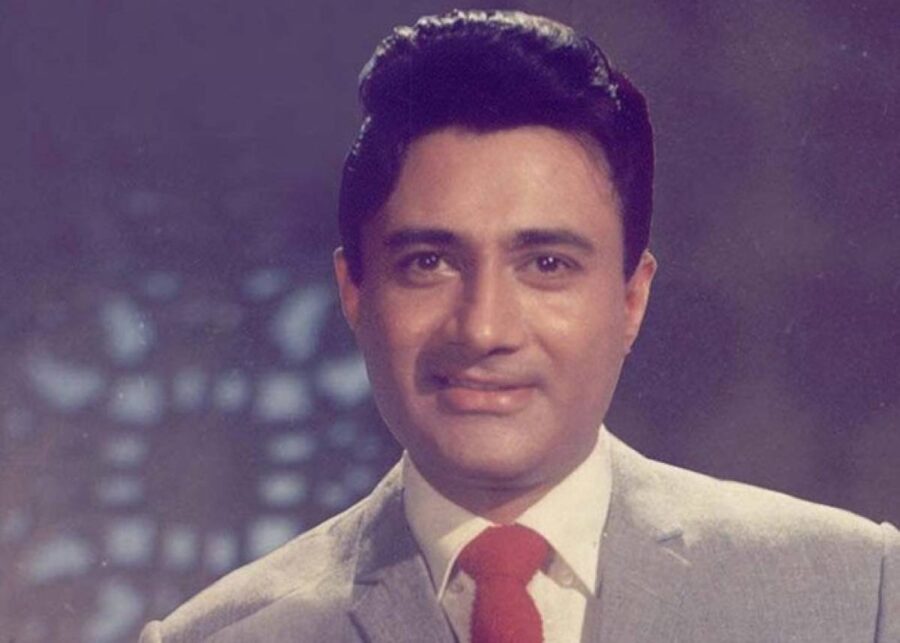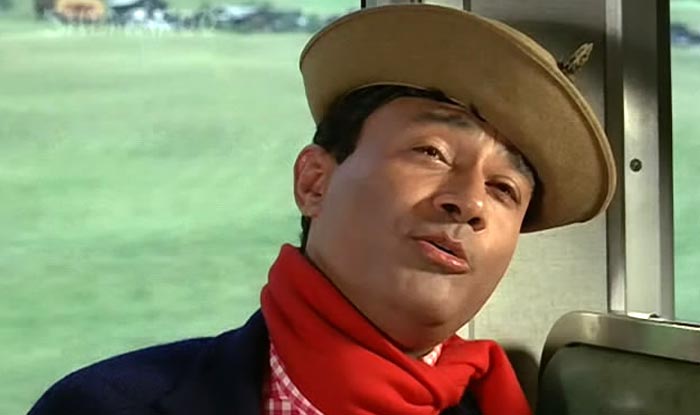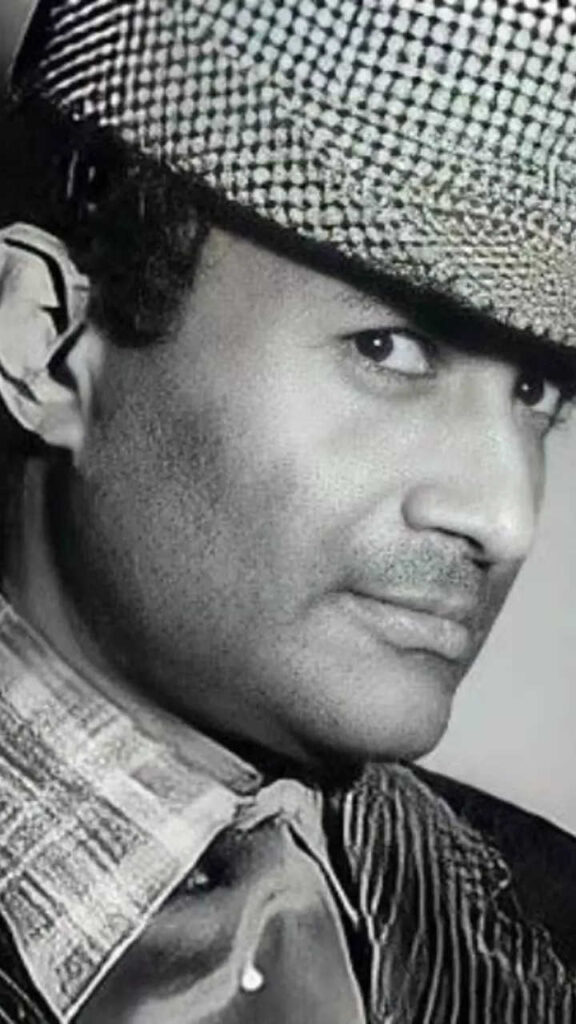
Debonair and evergreen are the two words that come to mind when you think of Dev Anand. The evergreen romantic hero of Hindi cinema, whose career spanned six decades and whose romancing skills set millions of female hearts aflutter for a few decades from the 1950s, will perhaps be best remembered for his unmatched rendering of timeless melodies. When Hindi film actors were struggling to live up to Nehruvian idealism on the big screen, there emerged a flamboyant anti-hero who filled the audience with optimism. With a cap perched on puffed-up hair, a smile on his face and a song on his lips, Dev Anand straddled the space between the good and the bad, old and new, sometimes as a rakish cab driver and at others as a debonair con artiste seeking redemption.
Dharamdev Anand, popularly known as Dev Anand, was an actor, writer, director, producer, and comedian known for his notable works in the history of Indian cinema and is regarded as one of the most influential actors till date. Anand aspired to become a performer after seeing Ashok Kumar’s performance in films like Achhut Kanya and Kismet. He made his acting debut with Prabhat Films’ Hum Ek Hain (1946).
Dev Anand was paired with singer-actress Suraiya in seven films together – Vidya (1948), Jeet (1949), Shair (1949), Afsar (1950), Nili (1950), Do Sitare (1951) and Sanam (1951), all of which were successful at the box office and with whom he had an intense emotional love affair during 1948-1951, but it could not come to the marriage altar, because of great opposition by Suraiya’s maternal grandmother. Suraiya remained unmarried throughout her life, till she died on 31 January 2004. Later, in 1954, Dev Anand married actress Kalpana Kartik with whom he has two children, Suneil Anand and Devina Anand (Narang).

However, his first success came with Ziddi (1948), co-starring Kamini Kaushal. In 1949, he launched his own company Navketan Films with his elder brother Chetan Anand. At Navketan, he provided a platform to a new breed of musical talent in the Hindi film industry that played a crucial role in creating the abiding mystique of Dev Anand. From the plaintive ‘Jayen’ to ‘Jayen kahan’ (Taxi Driver) and the beseeching ‘Abhi na jao chhodkar’ (Hum Dono) to the moving ‘Khoya khoya chand’ (Kala Bazar) and the mournful ‘Hum bekhudi main tumko pukare chale gaye (Kala Pani), Dev Anand performed myriad moods of romance that continue to evoke emotions decades after they were composed.
Years later, when he took up the director’s mantle, Dev Anand invited Gopaldas Neeraj to collaborate with S.D. Burman on Prem Pujari (1970) and stood by him when Burman found the ways of the eminent Hindi poet not suitable for the film world driven by the tune. The effort resulted in classic numbers such as ‘Rangeela re’ and ‘Shokiyon main ghola jaye’. But around the same time, he collaborated with R.D. Burman and Anand Bakshi to give us a completely new sound with the ultimate youth anthem ‘Dum maro dum’ in his Hare Rama Hare Krishna.
When Guru Dutt and Chetan Anand moved on to follow their more profound pursuits, Dev’s younger brother Vijay Anand carried forward the image with Nau Do Gyarah (1957) and Kala Bazar (1960). Even when he played a law enforcer in C.I.D., Dev Anand didn’t play an infallible hero and carried the trait when he gradually moved on to more mature roles in the 1960s with Hum Dono (1961) and Guide (1965) — the acme of his creativity with which Dev Anand not only transcended geographical borders but also went on to describe the philosophy of his life.
The Government of India honoured him with the Padma Bhushan in 2001 and the Dadasaheb Phalke Award in 2002 for his contribution to Indian cinema. His career spanned more than 65 years with acting in 114 Hindi films, of which 92 have him play the main solo lead hero.
Celebrating the 100th birth anniversary of screen icon Dev Anand, the Film Heritage Foundation (FHF) announced that films such as “Hum Dono”, “Tere Ghar Ke Samne”, “CID”, and “Guide”, will be honoured ahead of his birthday on September 26 with a gala titled ‘Dev Anand@100 – Forever Young’.
“We wanted to honour his legacy by screening four of his milestone films. The films are among my personal favourites as I consider Goldie Anand (Vijay Anand) one of the most stylish directors of Indian cinema. The festival also marks an important collaboration between Film Heritage Foundation and NFDC-NFAI who have restored the four films and partnered with us to enable us to showcase these films,” said the FHF founder, filmmaker and archivist Shivendra Singh Dungarpur. “The Gregory Peck of India, as Dev Anand was often called, continues to be a beloved star, and we are thrilled that contemporary audiences will have the opportunity to watch some of the films that made him an enduring legend of Indian cinema,” he further added.

Paying tribute to her most cherished co-star, Waheeda Rehman said, “My mind takes me back to 1965 when my most memorable film ‘Guide’ was made. It was my best combination with Dev Anand and Vijay Anand. It won international acclaim. And I clearly visualise Dev’s legendary toothless smile as said “Wahidi, you were unparalleled as Rosy”. As Raju Guide, Dev gave an all-time memorable performance. He was at his altruistic best in the last few frames, especially in his death scene. He was obviously the most handsome hero of his generation. In ‘Guide’ he appeared ravishing and sublime wearing the saffron garb. He emoted brilliantly crying in the dialogue, “Ekbar mujhe kahene do mujhe tum se pyaar hai Rosy”.
She further added, “I still thank Dev and Goldie whole heartedly for creating the Rosy in me, which R K Narayan complimented seeing ‘Guide’. He told me that I brought his Rosy alive on screen. So did Dev as Raju the Guide.”
Zeenat Aman, one among the many favourites of Dev Saab, said, “When entering an industry like Bollywood, every actor hopes for a star-maker. Someone who sees the glimmer of potential and ambition that has perhaps only been visible to the self thus far. Very few are so lucky as to find this person, but I was. My star-maker was Dev saab.”
Even when his rapid-fire delivery and exaggerated mannerisms became dated, the themes of his films still remained relevant. Unfortunately, he could not separate the chambers of acting and direction inside him. His immensely talented nephew, Shekhar Kapoor once said that it took his uncle just 10 minutes to get over the colossal failure of Ishk Ishk Ishk (1974) that marked Shekhar’s debut as an actor. Untouched by cynicism, Dev Anand didn’t carry the baggage of unfulfilled relationships and professional failures. His candid nature is reflected in his autobiography as well and the Hum Dono song, ‘Main zindagi ka saath nibhata chala gaya’ describes his zest for life and the urge to live up to his youthful image till the very end.
[the_ad id=”55722″]


















